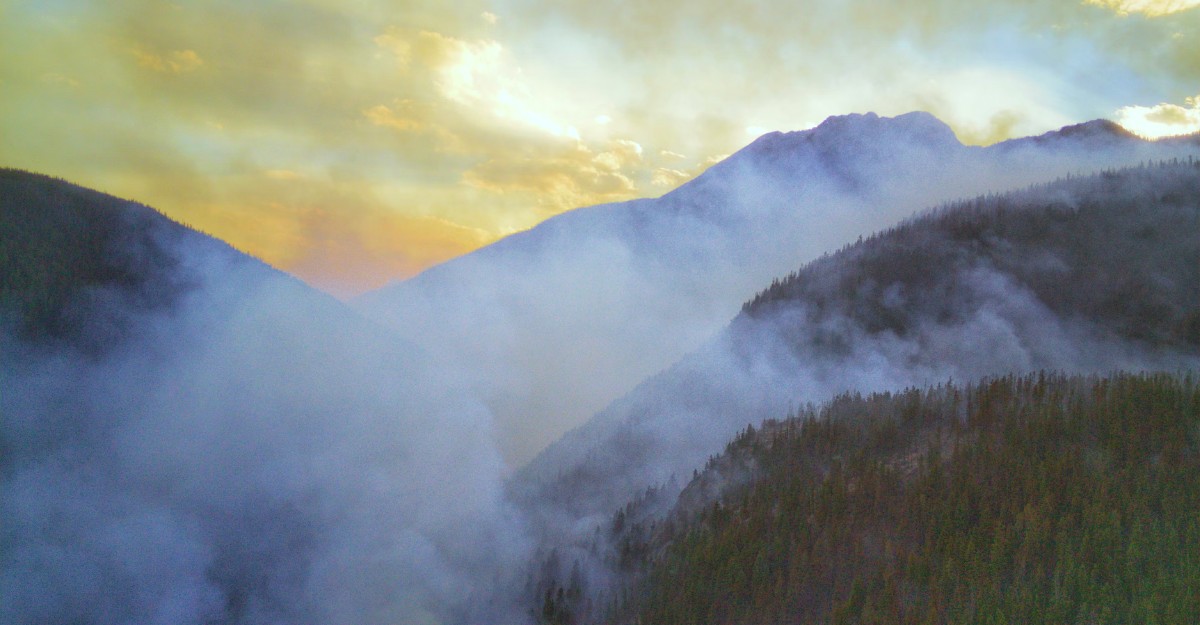Natural disasters in Alberta: What employees need to know

Can my employer force me to work during a natural disaster?
If a natural disaster makes it unsafe for non-unionized employees in Alberta to perform their job duties, employers can’t force staff to work.
The province’s Occupational Health and Safety (OHS) Act requires businesses to provide a safe work environment for their staff.
Since natural disasters can create a legitimate workplace safety issue, Albertans might be able to exercise their right to refuse unsafe work.
- Example: You are a groundskeeper in Calgary. One day, news outlets inform you that crews are fighting a massive wildfire north of the city, which has already created a significant amount of air pollution for Calgary and surrounding areas. Despite concerns about air quality, your boss instructs you to continue working. Since you would have to spend multiple hours outdoors, there is a very good chance that you would be able to exercise your right to refuse unsafe work — making it illegal for the company to force you to continue working.
If you believe a natural disaster has made it unsafe for you to continue performing your job duties, inform your employer in a letter or email immediately.
Unfortunately, some companies refuse to take the appropriate steps to provide a safe work environment. In this situation, reach out to the OHS Contact Centre.
If you are punished or fired by your boss for exercising your right to refuse unsafe work, contact an experienced employment lawyer at Samfiru Tumarkin LLP.
We can review your situation, assess your legal options, and help you secure the compensation you deserve.
WATCH: Employment lawyer Lior Samfiru explains several things employees shouldn’t do before seeking legal counsel on an episode of the Employment Law Show.
Types of natural disasters
- Wildfires
- Floods
- Hurricanes
- Tornadoes
- Earthquakes
- Volcanic activity
- Landslides
- Heat waves
- Drought
- Avalanches
- Ice storms
- Tsunamis
My boss made major changes to my job after refusing unsafe work, can they do that?
In Alberta, non-unionized workers don’t have to accept substantial changes to the terms of their employment.
Major modifications, such as a demotion, workload increase, or pay cut, are illegal in the province.
If your employer makes significant adjustments to your job without your consent, there is a very good chance that you can treat it as a constructive dismissal.
In this situation, the law allows you to resign and pursue full severance pay.
However, you shouldn’t quit your job until a member of our team confirms that you have been constructively dismissed.
ADDITIONAL RESOURCES
• Changes to your job in B.C.: Employee rights
• What Ontarians need to know about changes to their job
How is severance pay calculated in Alberta?
Severance for non-unionized employees in Alberta can be as much as 24 months’ pay.
This includes individuals working full-time, part-time, or hourly in the province.
The amount of compensation you are entitled to is calculated using several factors, including:
- Age
- Length of service
- Position at the company
- Ability to find new work
To figure out how much you could be owed, use our firm’s free Severance Pay Calculator. It has helped millions of Canadians determine their severance entitlements.
If your company’s offer falls short of what our Severance Pay Calculator says you are owed, it’s very likely that you have been wrongfully dismissed and should take legal action.
We regularly resolve wrongful dismissal claims and can help you secure proper compensation.
LEARN MORE
• Severance pay for provincially regulated employees
• Rights to severance for federally regulated workers
• Severance packages in a recession
My workplace was destroyed by a natural disaster, am I still owed severance pay?
If your workplace is destroyed or significantly damaged by a natural disaster, making employment impossible for the foreseeable future, it’s unlikely that your employer would have to provide you with a severance package.
However, if you are able to continue performing your job duties remotely, then you would be entitled to compensation if you are fired or let go.
SEE ALSO
• Can employers in Alberta force staff to relocate?
• Do I have to tell my employer I’m working from another province?
My boss is pressuring me to quit after refusing unsafe work, what should I do?
While your employer might be livid that you exercised your right to refuse unsafe work, the company can’t pressure or force you to resign.
If your boss is influencing you to step down, document their attempts. Keep any letters, emails, or text messages that show how your employer is pressuring you to quit your job.
Once you have gathered all of the relevant documents, don’t resign before contacting our firm. You might have grounds for a constructive dismissal claim.
Already resigned?
If you were forced to quit your job for any reason, connect with an experienced Alberta employment lawyer at Samfiru Tumarkin LLP as soon as possible.
In addition to severance pay, you could be owed compensation for any damages associated with the end of your employment.
LEARN MORE
• Employment Law Show: Facts about forced resignations
• Employment Law Show: What your employer legally can’t do
• Employment Law Show: Situations that trigger legal disputes
Can my boss fire me for refusing to work during a natural disaster?
Employers in Alberta can fire non-unionized workers for any reason, as long as they are provided full severance pay and the reasons for their dismissal aren’t discriminatory. This is known as a termination without cause.
If you refuse to work during a natural disaster, and the current conditions aren’t creating an unsafe work environment, this could be seen as insubordination — potentially justifying a termination for cause.
In this situation, your boss doesn’t owe you a severance package and you won’t be able to access Employment Insurance (EI) benefits.
However, to justify firing you for cause, the company must prove progressive disciplinary measures were applied and that a lesser punishment wouldn’t be acceptable, which is very difficult to do.
In our experience, most non-unionized employees don’t meet the conditions necessary for this type of dismissal and are entitled to severance pay.
SEE ALSO
• Can I be fired in Alberta if I’m late due to weather?
• Do I have to look for a new job after getting fired?
• Employment Law Show: Facts about the termination process
Natural disaster aid in Alberta
The Disaster Recovery Program (DRP)
The DRP provides financial assistance for uninsurable losses and damage after certain disasters. There is a $500,000 funding cap per homeowner application and a one-time limit on disaster financial assistance per property address.
ADDITIONAL RESOURCES
• Alberta income support program helps individuals after job loss
• Alberta emergency financial assistance
• Red Cross emergency and disaster services for Alberta
• Alberta labour & immigration services: Guide on how to recover after job loss
Lost your job? Speak with an employment lawyer
If you are fired or let go during a natural disaster, or for any reason, contact the experienced employment law team at Samfiru Tumarkin LLP.
Our lawyers in Alberta, B.C., and Ontario have helped tens of thousands of non-unionized individuals resolve their workplace issues.
We can review your situation, enforce your rights, and ensure that you receive the compensation you are owed.




